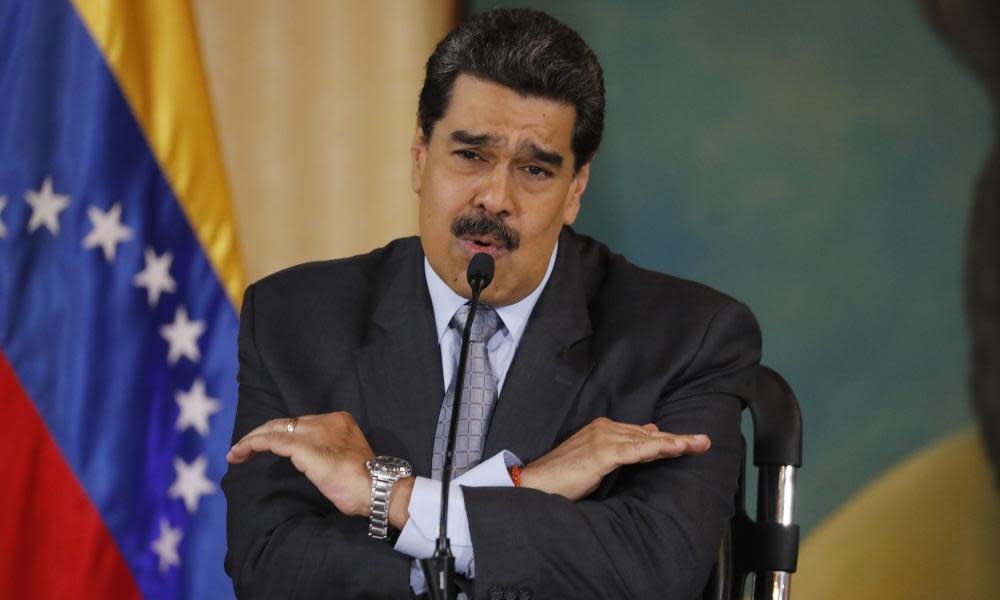Venezuela wins UN human rights council seat despite record of abuses

Activists have responded with outrage after Venezuela won a fiercely contested vote for a seat on the UN’s human rights council on Thursday, despite its well-documented record of human rights abuses.
The 193-member world body elected 14 members to the 47-member council on Thursday for three-year terms starting in January, with Venezuela claiming one of the two seats allocated to Latin America with 105 votes.
The other seat went to Brazil, whose far-right leader, Jair Bolsonaro, has frequently expressed contempt for the concept of human rights.
Related: ‘They are murderers’: special forces unit strikes fear in Venezuelans
About 4.5 million Venezuelans have fled their nation’s economic and social collapse, as the embattled president, Nicolás Maduro, has deployed the military to snuff out dissent. Opposition activists, journalists and human rights defenders are often jailed, while security forces loyal to Maduro commit abuses with impunity.
“The inclusion of Venezuela and Brazil to the human rights council marks a backwards step in the advancement of human rights in the region,” said Rodolfo Montes de Oca, a lawyer at Provea, a Venezuelan rights group.
Bolsonaro has repeatedly praised the torturers of the country’s military dictatorship, encouraged police to carry out extrajudicial killings and said that he hopes criminals will “die in the streets like cockroaches”.
However, José Miguel Vivanco, the Americas director at Human Rights Watch, said that Brazil’s institutions still offered a degree of protection.
“Despite Bolsonaro’s very poor record and anti-rights rhetoric, Brazil is still a democracy in which the judiciary, an independent media and NGOs are bravely pushing back,” Vivanco said. “The Brazilian congress has also been able to stop some of the most egregious draft legislation proposals promoted by Bolsonaro to grant the police power to kill with impunity.”
“On the other hand, Venezuela is beyond the pale,” Vivanco said. “Its authorities are responsible for systematic egregious abuses and a humanitarian emergency.”
A coalition of western countries, led by the US, backs Venezuela’s opposition leader, Juan Guaidó, officially recognizing him as the South American nation’s legitimate president in January this year.
But Maduro still clings to power and will probably be emboldened by his country’s new post at the UN.
“They can say they were elected to the human rights council and from there have a voice to push back on their critics,” said David Smilde, an analyst at the Washington Office on Latin America, a thinktank.
Opposition politicians, however, were appalled.
“It’s shameful, a travesty,” said Vanessa Neumann, Guaidó’s ambassador to the UK, who added that the vote will do little to silence Maduro’s critics. “Ultimately the march of history’s harsh judgment on Maduro and his regime will not be stopped by this.”
Earlier this year, the UN human rights chief, Michelle Bachelet, issued a scathing report on Venezuela, which described widespread cases of torture, extrajudicial killings and withholding food and medicines from civilians.
The UN human rights council is no stranger to controversy, with repressive countries including Cuba, Saudi Arabia, China, Indonesia and Russia taking seats in the past.
The US abandoned the council for the second time in June last year, claiming the institution was biased against Israel.

 Yahoo News
Yahoo News 
